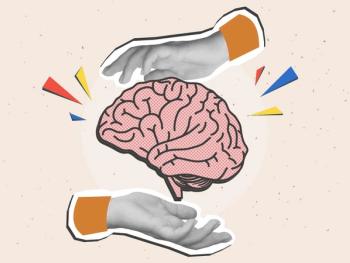
- Vol 33 No 8
- Volume 33
- Issue 8
My First Lesson in Countertransference
Here's the story of one of my very first patients -- 45 years ago -- who taught me a powerful lesson about countertransference.
PSYCHODYNAMIC THERAPY
I’m grateful to Psychiatric Times for this opportunity to offer periodic columns about psychodynamic therapy. Not only is psychodynamic therapy a useful evidence-based treatment, but a psychodynamic perspective offers such a valuable set of skills to integrate overall treatment plans that every psychiatrist would benefit from some degree of mastery. I thought I’d begin this series with a lesson I learned about countertransference in my first therapy case.
The early 1970s, when I was in medical school at the Columbia College of Physicians & Surgeons, were a tumultuous time, with an antiwar movement that involved many of us in student protests while we were also struggling to learn medicine and form our personal and professional identities. Although psychiatry seemed fascinating, the suggestions from some senior psychiatry faculty that our antiwar protests represented unresolved Oedipal issues with our fathers were offensive, uninvited interpretations. Of course, in retrospect, they were right, but so were we-as nothing is ever just one thing. To help decide whether to pursue a career in psychiatry I chose to be among the first Columbia medical students to embark on a unique 3-month psychiatry elective in my fourth year.
My first psychotherapy case was a woman I’ll call Carol-an attractive, plump, single, 50-year-old African American woman from nearby Harlem, who was seeking treatment for depression. I learned from my supervisors-a senior resident and an attending-that Carol had DSM-II “involutional melancholia” because of the onset of depression around menopause. Amitriptyline was prescribed for her, but she also jumped at the chance for psychotherapy once weekly for 12 sessions with-well-me, a well-meaning but naive medical student. What followed has stuck with me for many years.
In our sessions Carol told me about life growing up in Harlem; about her father’s early death; about her family’s strict religious principles, which she embraced; and about becoming a schoolteacher. Carol never married, though she had wanted to, and had wanted to be a mother, but her one relationship with a man, a church musician, had ended badly. He had suddenly ended the relationship and disappeared, so she was single, childless, and alone except for her students, fellow teachers, and friends from church. I did the best I could to try to be a therapist: listening carefully, asking questions to deepen our understanding of her life and her depression, and taking the case to my supervisors after each session.
I came to feel fond of Carol, and she seemed to enjoy my earnest desire both to be helpful and to learn about her. Despite the warmth between us, I also felt an impenetrable barrier, a noticeable distance between us. Perhaps this was the inevitable gulf between a privileged white, agnostic Jewish man in an Ivy League medical school and a devoutly religious Protestant African American woman from Harlem. Carol made gains over our 3 months, perhaps responding to the tricyclic, perhaps to our relationship.
It was session 12, our last before I left the rotation and our time-limited therapy would end. My supervisors had told me how important “termination” was, about how saying goodbye after even relatively short-term work could be meaningful and important. But Carol had missed session 11, when the “termination” discussion we had begun in session 10 was to continue. This was the first session she had missed, so now we had only this session to say goodbye.
In that final session Carol seemed different, a bit more anxious. We talked about the work we had done, about her good wishes for my further training and mine for her future, and then about missing the previous week because our appointment had just slipped her mind. As the clock ticked down, Carol confessed that there was a piece of the story about the end of her one romantic relationship that she had left out. Carol revealed that she had been sexually involved with that church musician she had hoped to marry…that she had gotten pregnant…that his response had been to flee the city, and that she had obtained a secret and-at the time-illegal abortion terminating the pregnancy to spare herself what felt like unbearable shame and degradation. But she had also lost her one chance for love, and her one chance to have a child-who would now be 25 years old-not so different from my own age.
She had never told anyone about this-not her mother, not her sisters, no one. Now, with 5 minutes left in our final session, she was telling me. I felt bewildered. I felt awful for Carol who had been so long alone with her secret about the loss of her innocence and of her child. I was honored to be the one she shared this with, but I also felt strangely duped, cheated, like a fool, and like I didn’t have much potential as a therapist if she hadn’t been able to tell me sooner than the last session. Carol and I said goodbye then, but she has remained in my memory over these many years as my first therapy case.
I immediately went from the session to my supervisors, where I voiced my shame, frustration, and disappointment that the very thing we ought to have been dealing with since session one, Carol’s secret pregnancy and abortion, the events of her history that put her “involutional melancholia” into context, had emerged only at the very end of our last meeting. To my surprise and consternation my supervisors did not join my frustration and despair, but were utterly delighted. Couldn’t I see, they tried to point out, that telling me the secret, unburdening herself of this truth was itself the outcome of the therapy? They were pleased things had gone so well, while I was filled with a sense of being duped, of being left with something I couldn’t process or deal with-filled with frustration about lost potential and longing for more time to make sense of what had happened between us.
Now, over 45 years later, I understand more clearly that I was struggling with the countertransference recreation of how Carol felt when her lover left her pregnant, ashamed, frightened, and alone. It was a powerful lesson about countertransference. I am grateful to Carol for trusting me enough to use me in the way she did. She helped teach me to be a therapist. I understand now that sharing her dark secret helped set her free.
MORE ABOUT THE AUTHOR
Dr. Plakun is editor of 2 books, including Treatment Resistance and Patient Authority: The Austen Riggs Reader (Norton, 2011), author of 50 published papers and book chapters, and has presented over 100 scientific papers. He is a Distinguished Life Fellow of the American Psychiatric Association, past Chair of its Committee on Psychotherapy by Psychiatrists and its Bylaws Committee, and founding leader of its Psychotherapy Caucus. He is a member of the APA Assembly Executive Committee, Chair of the Assembly Committee of Representatives of Subspecialties and Sections, and past Chair of the Assembly Task Force on Psychotherapy by Psychiatrists. He has been honored as the Outstanding Psychiatrist in Clinical Psychiatry by the Massachusetts Psychiatric Society, is a leader in organized psychiatry, and is a passionate advocate for the value of psychotherapy and other psychosocial treatments. Dr. Plakun is interested in molecular genetics and its growing focus on the importance of epigenetics-he believes that psychotherapists are really “clinical epigeneticists.”
Before he entered psychiatry, he served as a rural general practitioner in Vermont-where he made house calls on skis. He still loves the outdoors. This summer he rafted through the Grand Canyon on the Colorado River and will spend some time in his personal haven in the Adirondack Mountains of New York, where he hikes, cycles, and tries his luck at fly fishing.
Disclosures:
Dr. Plakun is Associate Medical Director, Director of Biopsychosocial Advocacy, The Austen Riggs Center, Stockbridge, MA; and Leader, American Psychiatric Association Psychotherapy Caucus. He reports no conflicts of interest concerning the subject matter of this article.
Articles in this issue
over 9 years ago
The “Hard” and “Soft” Phenotypic Boundaries of Bipolar Disorderover 9 years ago
Game of Thrones: HCEover 9 years ago
Artists and Psychiatrists-or the “Art” of Psychiatryover 9 years ago
Chronic Pain and Depression: A Case Reportover 9 years ago
Gun Violence and Mental Illness: Talking With Liza H. Gold, MDNewsletter
Receive trusted psychiatric news, expert analysis, and clinical insights — subscribe today to support your practice and your patients.







